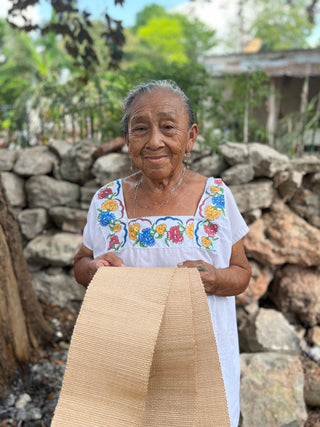
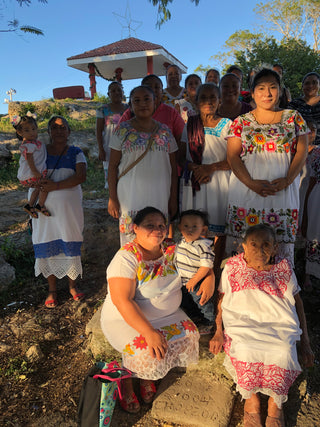
THE WOMEN OF MAYAB: women who, in addition to working, are mothers, grandmothers, athletes, wives and housewives.
March arrives, the third month of the year, and in its warm air it brings spring, flowers and the beach, but it also brings with it the commemoration of Women's Day. A day to remember the efforts that millions of women make every day to recover the place that was one day taken from them. A day to remember the grandmother who somehow managed to give us a worn-out Sunday, the mother who worked and still had time to make our favorite food, the friend whom we can trust and many other valuable women who surround us and inspire every day.
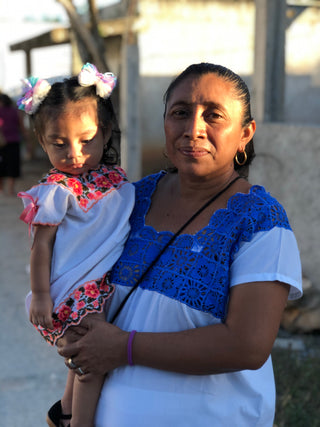
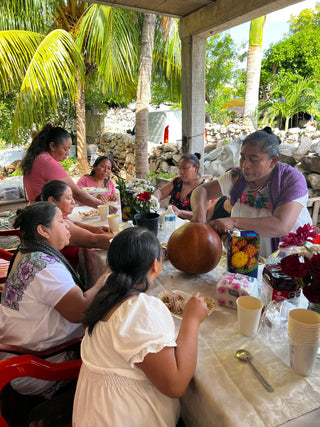
Life in the rural areas of the Mayab (original name of the Yucatan Peninsula in the Mayan language) can be very different from life in the city: quiet, cool, with more nature and isolated; However, inside we find some incredible and active women.
If we are very proud of something, it is that the teams that make up this project are made up mostly of women: embroiderers and henequen weavers, seamstresses, crochet weavers, accountants, workshop leaders, designers, janitors and doormen. All of them make this project possible and we learn a lot from them, because in addition to working, they also have a home to take care of, dreams to fulfill, children or grandchildren to grow up or a husband to support.
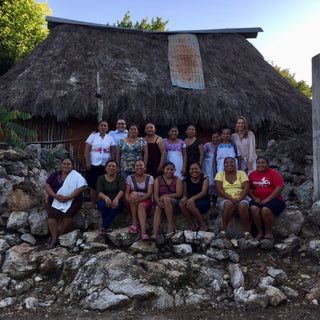
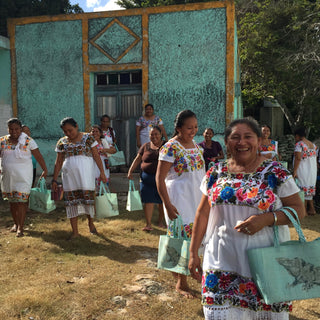
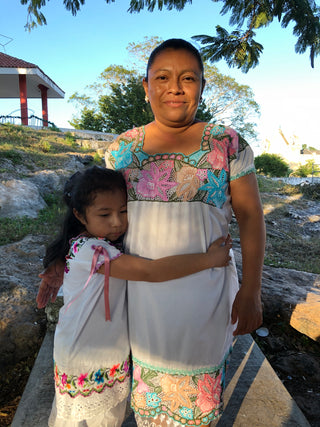
Visiting Mariana, leader of the group of embroiderers, Lilia, an artisan who works with crochet, or Leidy, who leads the group of henequen weavers, is always a pleasure for us. They always share with us what is theirs. Whether it's a glass of water, a sweet or a plate of food, they will always put something on your table. His hospitality, warmth and kindness are always evident, as is his love for his family, his home and his lifestyle.The income they earn from crafts is destined for the home, or, in most cases, for the educational purposes of their children: books, materials, notebooks.
Most of these women get up early in the morning, take their children to school, their husband goes to work, keep the home clean, go shopping at the market, pick up the children from school again, and They help them with their homework, tend to the garden, receive their husband and eat together. To end the day, they sit down to embroider or knit, depending on the craft activity they dedicate themselves to, which is amazing, because with this beautiful work they keep alive the craft techniques of Yucatan, which are currently at risk of disappearing.
Over the years, the team has taken on the task of perfecting the logistics behind their product line, and they have developed different processes for each piece. For example, a henequen bag embroidered with cross stitch would be made in the following way: First, the ideas arise in the workshop located in Chablekal, a small rural section in Mérida. Afterwards, the looms are sent to be made in a pueblo where once ready they are brought to the workshop to define the embroidery that will be applied to them. Subsequently, these are taken to the town where the cross-stitch machines are, and once the looms are ready, they are taken again to the first town, where the artisans will assemble the bag, to finally bring them to the workshop and give them the finishing touches. This entire process means that the pieces we offer are of the highest quality and 100% Yucatecan, thanks to the magical hands through which they have passed.

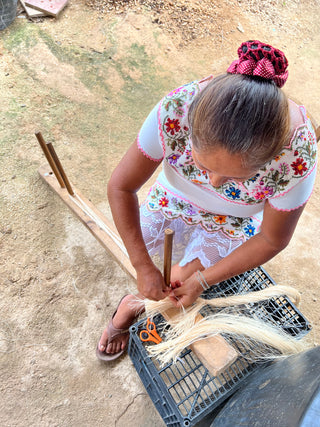
What is the priority of these little boxitas? Taking care of the family. After a relationship we have built with them for almost 8 years, it is beautiful to see their children go to college, see improvements in their homes, see their families grow and the dedication with which they strive to encourage children and the job. We don't know where they manage to find the time, but they do.
Some of them, like Mariana, also work in Mérida and play sports like soccer. It may seem surprising, but they have time to enjoy and walk, to update themselves with the news of the town and share pleasant moments with friends and neighbors.
